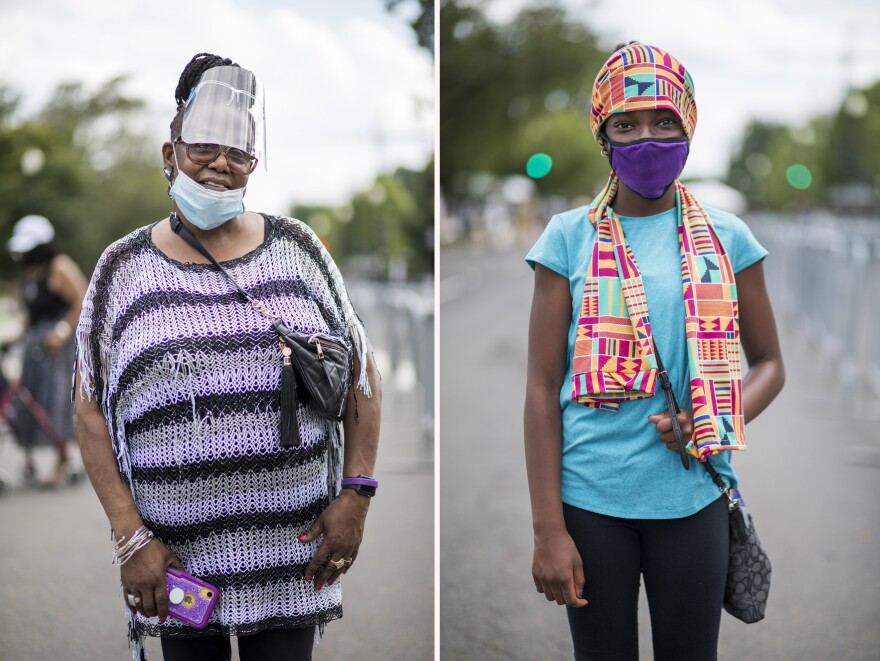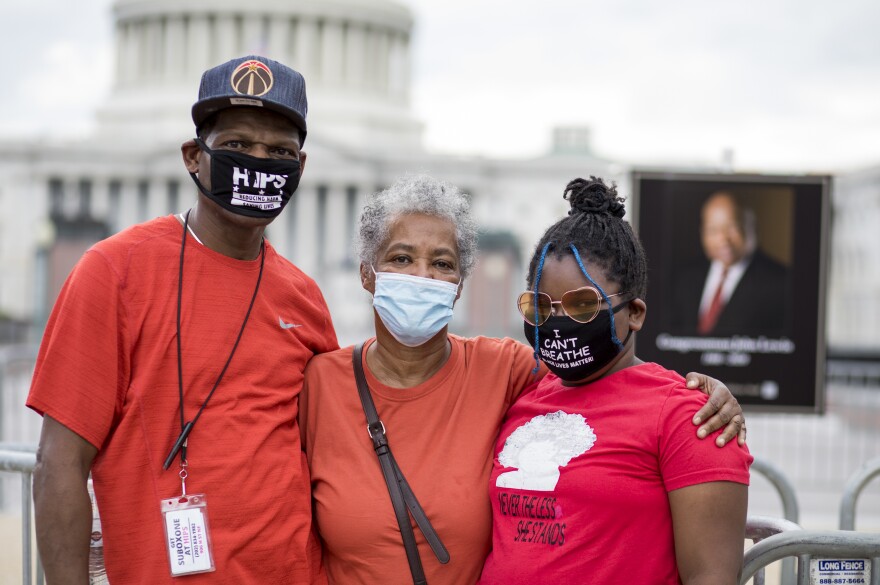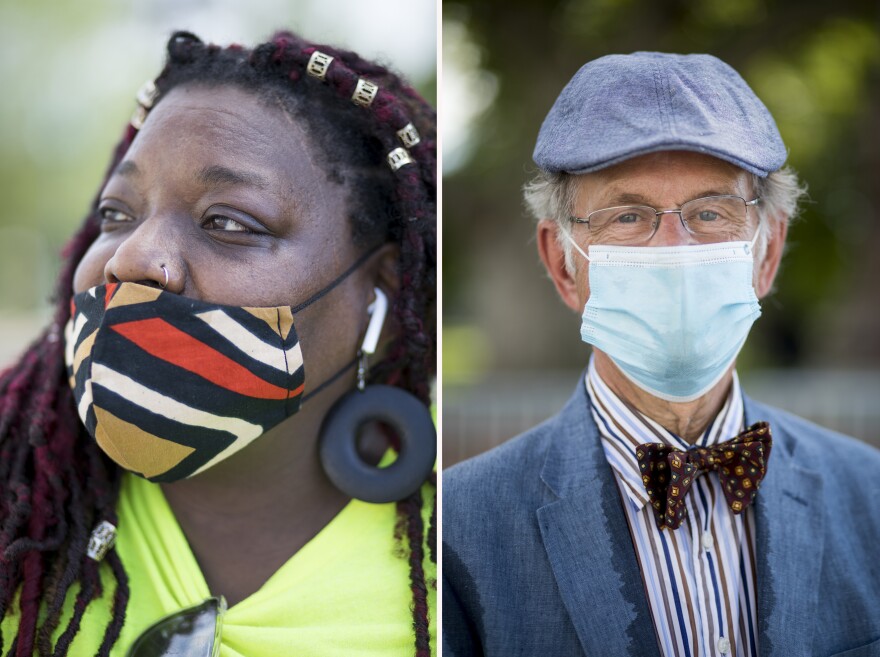Thousands of people from around the Washington, D.C., area and beyond came to pay their last respects to Rep. John Lewis, D-Ga., the lion of the civil rights movement and of Congress.
They braved the heat, and at times long lines, to pause at the steps of the Capitol for one last look, one last visit.
Below are portraits of some of the visitors and their words about what John Lewis meant to them.

"I'm Rev. Mark Perez and an Honorary Tuskegee Airmen," Perez said. He lives in Texas and says Congressman John Lewis introduced him to the Congressional Black Caucus. "We went to Ghana together for the African Economics Summit. He was always there for the youth."
— Rev. Mark Perez, Texas

"He is like our Martin Luther King fighting for civil rights and equality. I just thank him because over 50 years he suffered, was beat up, still fighting for us. And I appreciate it."
— Telsa Jones Linton, Rochester, N.Y.
"He means like a grandfather to me, a grandfather of the nation, a founding father of equal rights...I learned from him to always get into good trouble and to never give up."
— Mary Kabore, Honeytown, Md.

"He means everything to me. It means the world, and it is a part of history that needs to be taught. And that's why I wanted to bring my granddaughter."
— Joan Taylor


"I used to be a reporter in the Washington bureau of the Atlanta Journal-Constitution and covered Congressman Lewis 2000-2004. My mom got to meet him through me. He would often ask about my Mom. It was special to her. I learned more about the Civil Rights Movement through John." — Melanie Eversley, New York City

"He meant that not only can I vote, but my grandson, who's 17, next year he'll be able to vote...He made it so that I can go to any restaurant that I want to go to. He made it that the white privilege...he said that is everybody's privilege. And he made it so, fighting with his body on the line to make it that way, to allow for the 1964 and 1965 acts. And we still aren't there. But if it wasn't for him, we would still be way behind."
— Sheila Carr, Washington, D.C.
"He was a civil rights icon, and he was one of the people that allowed us today to vote, he was there [for] equal rights. So he was one of the last living civil rights leaders next to the likes of Martin Luther King...so he was a national treasure...definitely wanted to come here to pay my respects with my children, something that we'll always remember. Years from now we will say 'hey we actually went to see John Lewis laying in state."
— Alphonso Harrell, Richmond, Va.


"He means so much. The fact that he lived his life so everyone could have equal rights, and to be the first Black Congressperson to sit at the Capitol in rest, is history...he is now an ancestor. He moved from being an elder to an ancestor, and we have to pay tribute to him. I think everyone should honor what he lived for and what he stood for...he stood for everyone. "
— Angelina Hill, Alexandria, Va.
"I was a child of the sixties, and I certainly appreciated what he and so many others in the sixties was doing, and actually, I am angry at myself for not having been out there on the front lines with him. So, to make up for that, I'll pay my respects to him now for all he's done and what I hope will come after him."
— John Nash, Aldie, Va.
Dee Dwyer is a photographer at DCist. Follow her on Instagram @deedwyerjonts.
Tyron Turner is a photographer at member station WAMU. Follow him on Instagram @tyronefoto.
Copyright 2023 NPR. To see more, visit https://www.npr.org.


